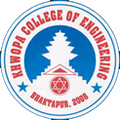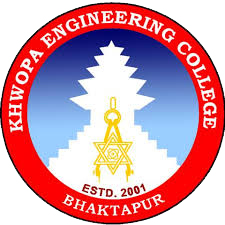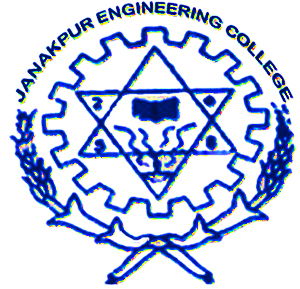Overview
Nepal Engineering College (nec) is a renowned academic institute established in 1994 to provide quality technical education to Nepalese students. It was founded by a group of visionary professionals and academicians who recognized the need for an institution that could contribute to the country's economic growth through engineering and technology education. nec is a not-for-profit social institute registered with the District Administration Office in Bhaktapur.
NEC's establishment catalyzed the development of several private engineering colleges in Nepal. The college is committed to maintaining its reputation as an institution dedicated to quality education and academic freedom, setting an example for others.
Over the years, nec has focused on designing, upgrading, and standardizing its academic curricula. It offers Bachelor's and master's courses in engineering, technology, and related disciplines. The college plans to introduce more innovative and applied courses in the future.
Despite its modest beginnings, nec has expanded its physical and instructional resources and now possesses learning facilities comparable to those of other reputed institutions in the country and the region. Its campus, situated in the Changunarayan Municipality of Bhaktapur, spans 210 Ropanies (10.69 hectares) of land and provides an ideal learning environment amidst natural surroundings.
Currently, nec offers Bachelor's and Master's degree programs. The Bachelor's level courses are conducted at the main campus in Changunarayan, while the Master's level courses are offered at the nec Center for Postgraduate Studies in Prayag Pokhari, Lalitpur. Additionally, the college organizes a specialized course, B.E. Civil for Diploma Holders (nec-BDH), at Satdobato in Lalitpur.
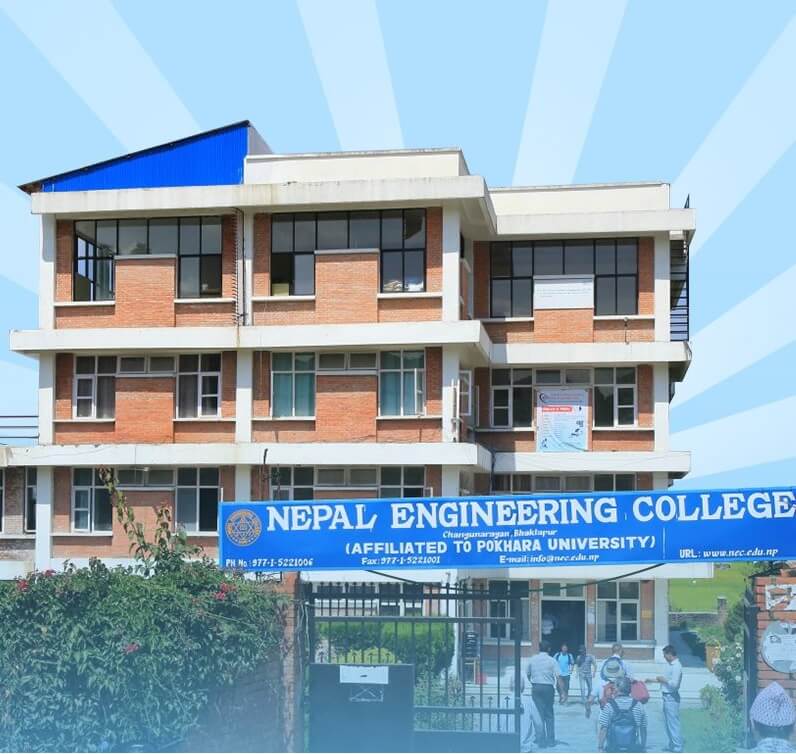
Vision and Mission of Nepal Engineering College
The vision of nec is to evolve as the center of higher learning, excelling in academics through continued engagements in education, research, and outreach as three integrated functions of the college.
-
In approaching the stated vision, the Mission of nec include:
-
Providing the youth with the best opportunities and environment of learning to help them attain a high level of academic standards, scientific temper, technical and professional competence, and life skills.
-
Train and develop youth as total people who are ready to serve society and people, alleviate their sufferings, and improve their quality of life.
-
Inculcate the values to appreciate the need for ethical standards in personal, social, and public life, become leaders, be a voice to influence society and the nation, and uphold just social order.
Background of Nepal Engineering College
Nepal Engineering College, popularly known as nec, is Nepal's first private-sector Engineering College. It was established in 1994 as a not-for-profit social, academic institute by a group of visionary Nepalese eminent professionals, academicians, managers, and industrialists who realized the need for an institution serving the higher educational needs in engineering, technology, and management reaching out to a broader section of Nepalese youths and making quality education accessible and affordable. They aimed to produce technically competent engineering graduates ready to contribute to the country's accelerated social and economic growth. This pioneering example set by nec led to establishing many engineering colleges in the country in the private sector in the later years. nec is committed to retaining its long-earned reputation as 'an institution with concerns for quality education and academic freedom,' again an example it sets for others to follow.
Since its establishment, nec has been designing, upgrading, and standardizing academic curriculum and its delivery at Bachelor's and master's level courses in engineering, technology, and allied disciplines. nec intends to continue with this initiative, offering more innovative and applied courses in established and emerging areas in the days to come. In doing so, nec has established a "brand" of its own.
Initiated with limited physical and instructional resources, nec has now grown into an institution with learning resources comparable to any institution of repute in the country and the region. The physical infrastructure and instructional resources, built on 210 companies (10.69 ha) of land at the lap of Changunarayan in Bhaktapur, a UNESCO world heritage site beside the Manohara river bank, provide an ideal learning ambiance.
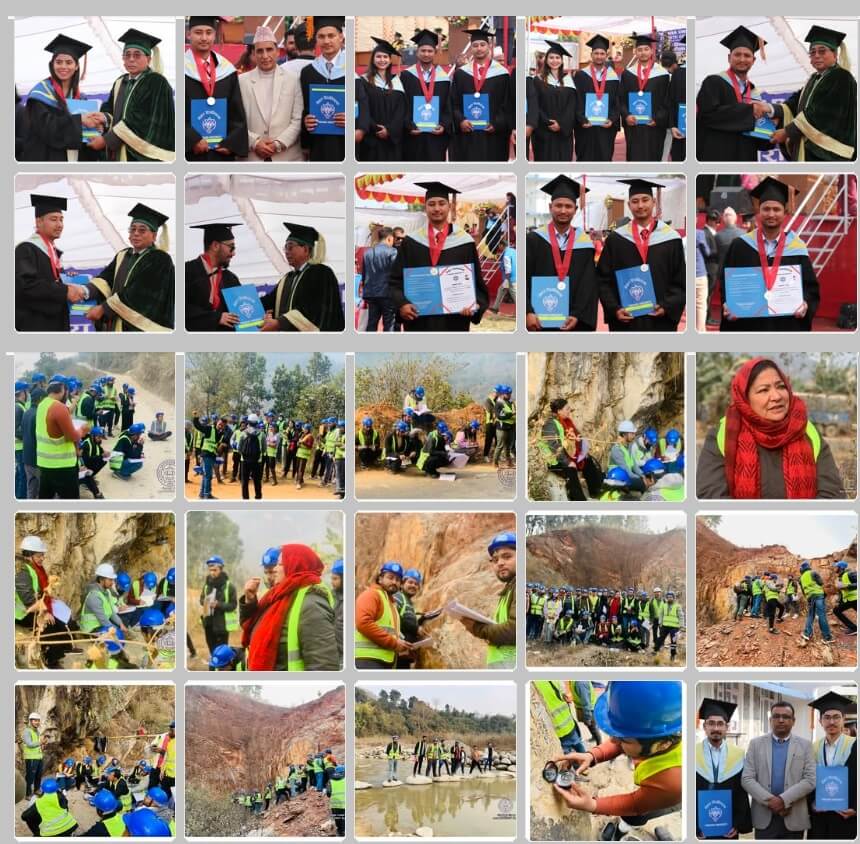
Highlights
-
The physical infrastructure and instructional resources, built on 210 Ropanies (10.69 ha) of land at the lap of Changunarayan Municipality-4 in Bhaktapur, a UNESCO world heritage site, right beside the Manohara river bank provide an ideal learning ambiance.
-
To date, the institutional linkages of nec extend to Ball State University, USA, Ehime University, Japan, Indian Society for Technical Education (ISTE), Imperial College London, South Asian Consortium for Interdisciplinary Water Resources Studies (SaciWATERs), Hyderabad-India, MVA Asia Ltd., Hong Kong.
-
Well-equipped Computer, Electronic, Electrical, Civil, Civil & Rural laboratories, and Architecture Design Studio.
-
The library has more than 40,000 books, Journals, and Magazines, which provide complete study materials to all students each semester.
-
About 125 qualified full-time faculty members, 100 non-academic staff, and part-time faculty with industrial experience and visiting faculties from foreign universities.
-
2-3 field visits/educational tours for every BE/BArch Program.
Nec offers bachelor-level courses in Civil Engineering, Electronics and Communication Engineering, Computer Engineering, Electrical and Electronics Engineering, and Civil and Rural Engineering. Civil Engineering for Diploma Holders leading to B.E. (Bachelor of Engineering) degree, Bachelor level course in Architecture leading to B. Arch (Bachelor of Architecture) degree, and Postgraduate courses leading to Master of Science (M.Sc.) degree in Construction Management (CM), Natural Resource Management (NRM), Interdisciplinary Water Resources Management (IWRM) and Transportation Engineering and Management (TEAM). B.E. Civil for Diploma Holders course is organized at nec-BDH Mahalaxmisadan in Lalitpur, and all the Postgraduate courses are organized at nec - Center for Postgraduate Studies (nec-CPS) located at Prayag Pokhari, Lagankhel, Lalitpur.
Civil Engineering (Intake: 144)
nec has been offering a Bachelor's program in Civil Engineering since 1994. The course aims to train qualified engineers to deal with the design, construction, operation, and maintenance of physical infrastructure and services. The students opting for this program undergo systematic theoretical and practical learning in the areas of material engineering, structural engineering, environmental engineering, transportation engineering, water resources engineering, geotechnical engineering, and surveying so that they develop needed analytical and hands-on skills to deal with and cater to wide-ranging infrastructure development tasks where civil engineers have major roles to play.
Civil and Rural Engineering (Intake: 48)
In Nepal, endemic rural poverty, food insecurity, and poor quality of rural life are outstanding development challenges. The inseparable relationship between agriculture and rural development demands that agriculture be looked at from the standpoint of holistic rural development. Strong inter-linkages exist among technology, infrastructure, and services, producing positive synergy to the rural economy and quality of life. This has created a demand for the technical cadre who could bring engineering knowledge to rural development. nec started a Bachelor's program in Civil and Rural Engineering in 2008, a unique initiative in the country and the region. The graduates in Civil and Rural Engineering are expected to serve in numerous government and development agencies working in rural infrastructure development, natural resources management, agro-industries, and rural credit institutions, apart from conventional Civil Engineering projects.
Computer Engineering (Intake: 96)
Rapid development in microelectronics and computer science has created the need for specialized manpower who could fuse these two cutting-edge technologies. This fusion of knowledge and technology has led to the evolution of a highly specialized professional field in engineering called Computer Engineering. Computer Engineers have wide-ranging career options in business, industries, production, service sectors, and IT industries. Realizing the growing need for Computer Engineers within the country and also rapidly growing employment prospects abroad, nec started a Bachelor's program in Computer Engineering in the academic year 1999. The program is uniquely designed to provide a broad knowledge of programming and microelectronics with specific software and hardware interfacing skills.
Electrical and Electronics Engineering (Intake: 48)
Traditionally, electrical engineering deals with the problems associated with large-scale electrical systems, such as electricity generation, transmission, and utilization. At the same time, electronics is concerned with low-voltage applications in computers, communication systems, and integrated circuits. The advancements in power transmission systems and diverse uses of electricity in different walks of life have created a demand to blend these two disciplines and develop breeds of engineers with knowledge and skills in both areas. Realizing the need for such manpower, nec started a Bachelor's degree program in Electrical and Electronics Engineering in 2006. The graduates are expected to avail themselves of career opportunities in the agencies concerned with generating, transmitting, and distributing electricity, alternative/renewable energy, communication, manufacturing, and service sectors.
Electronics and Communication Engineering (Intake: 96)
The last few decades have witnessed phenomenal growth in electronics and communication, from terrestrial to microwave and broadband communication. The development is still expected to be more vigorous, involving higher levels of sophistication, technology, and skills in the coming days. This has created avenues for specialized manpower who could design, develop, operate, and maintain electronic circuits and devices for diverse communication needs. Realizing the need for qualified manpower in this area within the country and overseas, nec started a Bachelor's program in Electronics and Communication Engineering beginning in the academic year 1999.
Bachelor in Architecture (Intake: 48)
The Bachelor Program in Architecture, leading to a B.Arch. (Bachelor of Architecture) degree is a five-year course that aims to provide systematic knowledge and skills in planning, designing, and conserving buildings and other built forms, with concerns for aesthetics, comfort, durability, social responsibility, and the environment.
Responsiveness and integration with natural and manmade landscapes.
The area of instruction covers a spectrum of courses relating to architectural design and planning, structural design, landscape management, interior design, and conservation and restoration of historical monuments and urban spaces and built forms. The program has been designed to match international standards in architecture education, preparing the students to become competent professionals for work in Nepal and abroad. The students can gain hand drawing and computer graphics competence to excel in the competitive professional environment. A full semester as an apprentice in an architect's office helps to prepare them to take on professional challenges before graduation. The final semester is dedicated to project work, wherein students are expected to accomplish architectural design independently through research and analysis.
Bachelor in Civil Engineering for Diploma Holders (Intake - 48)
Bachelor course in Civil Engineering for Diploma Graduates is designed to train competent graduates in Civil Engineering, joining the course after completion of Diploma level education. The Bachelor program in Civil (For Diploma Holders), which leads to a B.E Civil (Bachelor of Civil Engineering) degree, is a four-and-a-half-year course. Three unique features of the course are:
-
Classes scheduled in the afternoon on working days and weekends provide opportunities to the jobholders joining the course,
-
Course curriculum built on prior knowledge and skills of Diploma graduates comparable to regular academic courses in engineering offered in any part of the world and
-
Emphasis on curriculum delivery is needed to build key knowledge and competence to take up professional challenges. Students joining the course undergo systematic theoretical and practical learning in basic sciences, material engineering, structural engineering, water resources engineering, geotechnical engineering, and transportation engineering. This provides the opportunity to develop knowledge and skills to take up the array of infrastructure development tasks where civil engineers have an essential role.
Eligibility
Students seeking admission to a Bachelor's degree in Engineering or architecture must have completed Intermediate in Science/10+2/Secondary (with Physical or Bio Group) with at least a C grade in each subject or a Diploma in Engineering or equivalent from a recognized institution, securing at least second division marks.
Bachelor level courses
B. E. (Bachelor of Engineering) degree
-
Civil Engineering,
-
Electronics and Communication Engineering,
-
Computer Engineering,
-
Electrical and Electronics Engineering and
-
Civil and Rural Engineering
-
Civil Engineering for Diploma Holders leading to B.E. Civil degree
B. Arch. (Bachelor of Architecture) degree
-
Bachelor in Architecture
Masters level courses
-
Construction Management (CM),
-
Natural Resources Management (NRM),
-
Interdisciplinary Water Resources Management (IWRM) and
-
Transportation Engineering and Management (TEAM)
Quality Policy
nec is committed to leading the nation in technical education and research to produce quality engineers and managers for the country's and society's benefit. nec intends to provide a conducive environment for the learning process through a documented and transparent academic system targeted to stakeholders' satisfaction. nec is committed to complying with all the legal and statutory provisions of the state and continually improving the effectiveness of the management quality and performance.
International Linkages
NEC has established institutional linkages for academic exchanges with many universities, institutions, and organizations in different parts of the world. The exchange of faculty and students, sharing knowledge, experiences, and publications, and collaboration in teaching and research have been some of the continued activities initiated and supported under such linkages.
To date, the institutional linkages of nec extend to -
-
Ball State University, USA
-
Ehime University, Japan
-
Indian Society for Technical Education (ISTE), India
-
Imperial College, London
-
South Asian Consortium for Interdisciplinary Water Resources Studies (SaciWATERs), Hyderabad, India
-
MVA Asia Ltd. HongKong & NTDRC
-
Tarleton State University, Texas, USA
Contact Nepal Engineering College (nec)'s administrative office for detailed information on the course, admissions, location, fees, scholarships, facilities, counseling, or eligibility.
Contact Details:
Nepal Engineering College
-
Address: Changunarayan, Bhaktapur, Nepal.
-
Email: [email protected]
-
Phone: +(977)01-5221006
Nepal Engineering College(nec-BDH)
-
Contact Address:Lagankhel (Prayag Pokhari), Lalitpur, Nepal.
-
G.P.O. BOX: 10210, Kathmandu, Nepal
-
Email: [email protected]
-
Phone: +(977)01-5548585
Nepal Engineering College(nec-CPS)
-
Contact Address: Lagankhel (Prayag Pokhari), Lalitpur, Nepal.
-
Email: [email protected]
-
Phone: +(977)01-5530158



